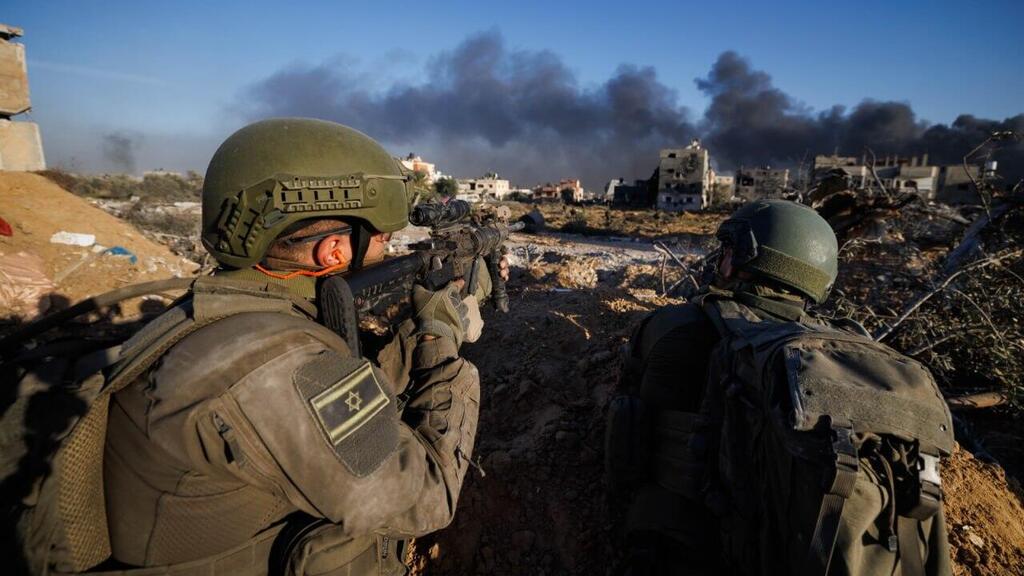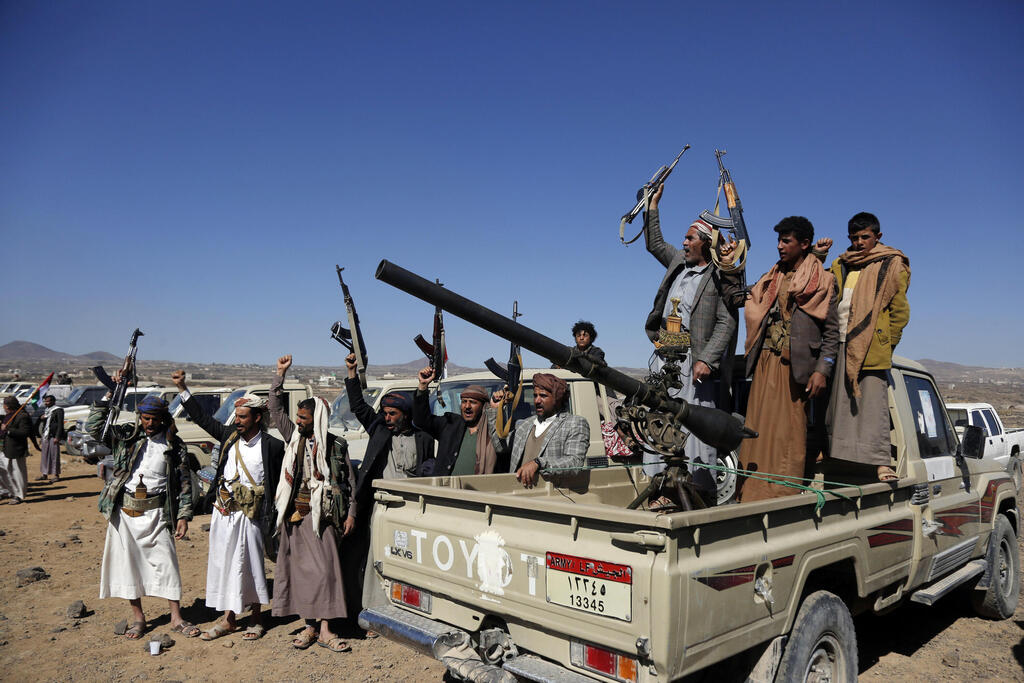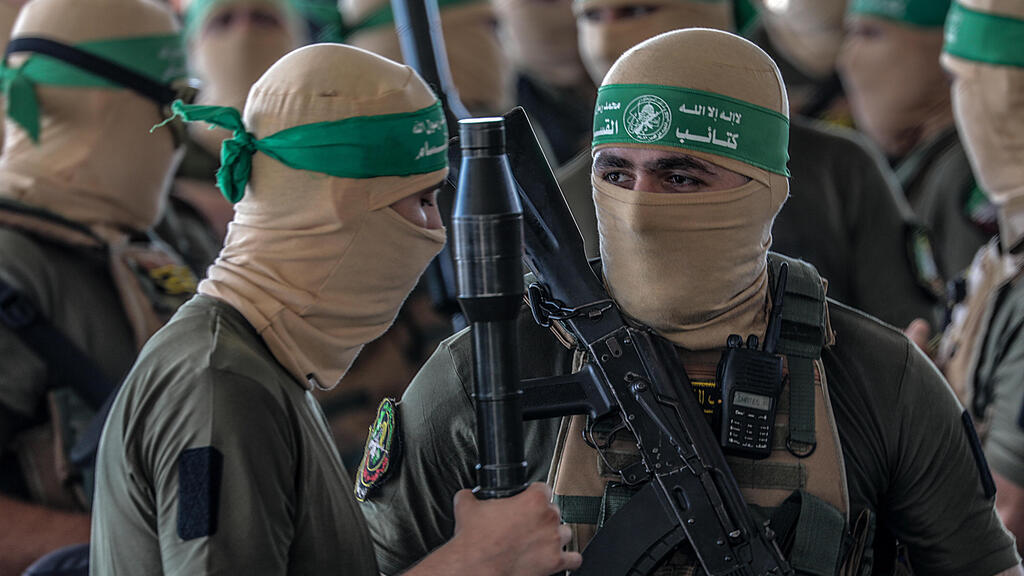Getting your Trinity Audio player ready...
The deepening world crisis now resembles the plot of a particularly unsuccessful thriller. New events, which appear to have at best a tenuous connection to those immediately preceding them, follow one after another so quickly that all coherence is lost.
More stories:
The latest of these cascading events is the set of attacks launched against multiple countries, including even at Pakistan, by Iran. Pakistan has predictably retaliated, but is most eager to stress that “both countries will not gain anything” from further shooting.
At a loss how to understand, let alone explain, such unexpected exchanges between Iran and Pakistan, both more known for hostilities with their other neighbors than with one another, the New York Times categorizes the event as one more element of the “upheaval washing over the Middle East”. While superficially true, there is a deeper and more substantive way of understanding the problem.
'When the cat's away the mice will play'
An old English proverb tells us that “When the cat's away the mice will play”. The cat, in this instance Western military pressure which either directly or indirectly deterred aggression during previous Middle Eastern crises, is absent without leave.
The American aircraft carrier Gerald R. Ford (CVN-78) has almost returned to its homeport in Norfolk, Virginia, leaving only the Dwight D. Eisenhower (CVN-69) to try to deal with the Houthis, with no carrier or other substantial naval force in the Persian Gulf and with the helicopter carrier Bataan (LHD-5) having departed the Red Sea altogether for Piraeus, Greece.
Britain, to her credit, has sent a third warship, the frigate HMS Richmond (F239), in addition to the destroyer and frigate which are now in the Middle East. This, however, is not a reinforcement, but a “stand-in”, intended to allow the other two ships occasional periods of rest.
America’s allies in the European Union, have, meanwhile “given initial backing” to a mission to protect ships against Houthi attacks, an exclusively passive tasking which will pose no threat to Houthi bases.
5 View gallery
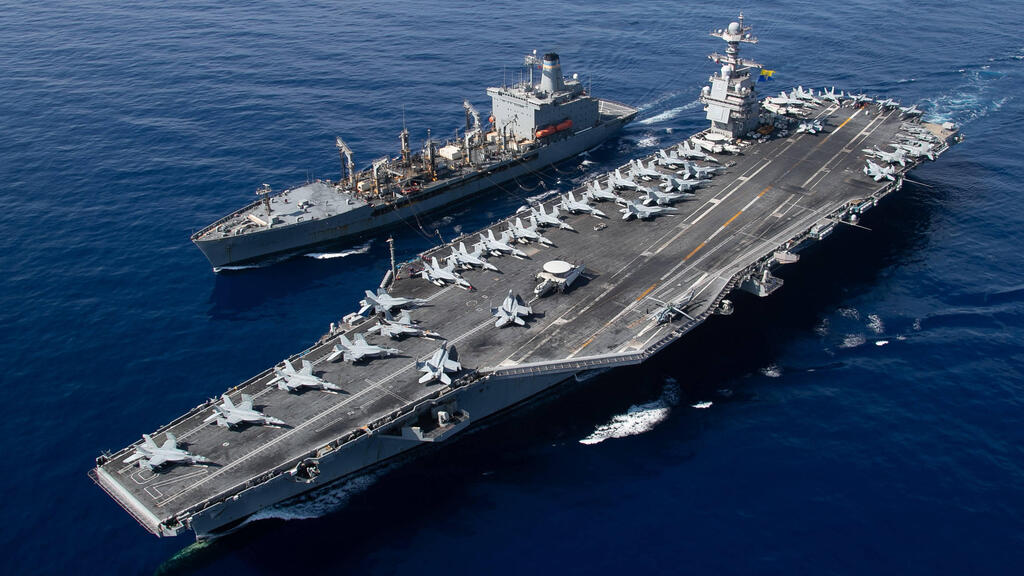

The USS Gerald R. Ford
(Photo: AFP PHOTO / US Department of Defense/US Navy/Mass Communication Specialist 2nd Class Jacob Mattingly")
Iran correctly sees all of the above as constituting a feeble response, and so is naturally acting with ever lesser restraint. Pakistan happened to be in the way on the present occasion, some other country might be next.
The phenomenon of aggressive regimes turning loose, and perhaps even abandoning rationality, has become global. In a previous article, I mentioned that North Korea’s Kim Jong-un has been talking about war. Now, Nicholas Kristof reports serious American experts concluding that the dictator “has made a strategic decision to go to war.”
In practice, unless Kim is no longer sane, he is unlikely to start a war now, when America still retains the minimal political coherence necessary to decide to annihilate his regime, should it attack South Korea. Kristof is right to urge America to be ready for any eventuality, but the course of American policy is heading in the opposite direction.
The U.S. has already been forced to launch a fifth set of strikes against the Houthis, a week into attempts to bring this threat under control. The crux of the problem is that careful, limited attacks on Houthi missile launchers are simply incapable of meeting the challenge.
In essence, America, now 34 trillion dollars in debt, is simply growing the debt mountain by launching expensive munitions at the Houthis, without taking decisive action to finally and irrevocably destroy Houthi capacity to threaten shipping.
A nation practicing such anti-strategy will certainly not be ready to deal with any rash action that Kim Jong-un, or another dictator possessing too many weapons and too little sense, might take.
Israel's second-longest war
Israel’s war in Gaza is heading in a similar, though not identical, direction. The ongoing fighting in Khan Younis and the killing of dozens of terrorists inflicts some damage on Hamas, but is not about to cause the collapse of Hamas rule in Gaza.
This, while the war has already lasted more than 100 days, and so longer than any of Israel’s large wars, with the exception of the three-year War of Attrition in 1968-70. America is pressing Israel to conduct even lower-intensity operations, which will necessarily make Israeli victory more distant and less certain.
While America’s conflict with the Houthis and Israel’s war in Gaza both struggle slowly along with no conception of how final victory might be gained, extreme views spread in the United States.
Daniel Levy, previously an official Israeli peace negotiator during the 1990s, is now a welcome opinion contributor in the New York Times, where he accuses the current Israeli government of rejecting “any horizon for peace” and calls for greater American pressure on Israel.
5 View gallery
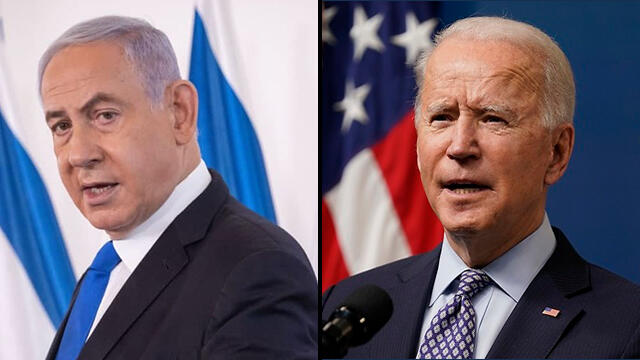

Prime Minister Benjamin Netanyahu, U.S. President Joe Biden
(Photo: Hadas Parush, AP)
This is the same Daniel Levy who wrote in the Nation just a month prior of “Israel’s war crimes” and of the “violence the West is willing to countenance against a captive people in Gaza”. The issue is less Mr. Levy’s personal extremism, more that people with such attitudes are given space in the mainstream press.
He is not alone. Mr. Kristof, the same columnist who now worries about North Korea, called for curtailing American aid to Israel in the New York Times last July.
A need for decisive action
In the prevailing circumstances, America, Israel and the West at large face a very basic choice. One is to continue to “fiddle while Rome burns”, to go on as before until there will no longer be anywhere left to go. The other, and the only reasonable one, is to strike hard at their enemies while the opportunity and resources to do so still exist.
Neither the Houthis, whose naval forces consist of small boats, nor Hamas, who crawl around in civilian clothes with rocket-propelled grenades, are indefatigable. They can and will be defeated if they are put under relentless, severe military pressure. So far, this has not happened, so America and Israel are continuing to bear the costs of terrorism.
In finding the path to victory, it is essential to understand the nature of the enemy. Neither Hamas or the Houthis have the slightest concern for the fate of their foot soldiers, or for the civilians in the areas which they control. Instead, their priorities lie in the preservation of the lives of a narrow group of leaders, the control of important territory, and the possession of the infrastructure needed to support further terrorism.
The terrorist organizations will only crack if they are left without the few things that are essential to them. Practicing generous humanitarianism is fundamentally incompatible with achieving this objective.
The receipt of humanitarian aid solves the problem of maintaining the civilian population for Hamas and the Houthis, takes away the threat of popular revolt which could otherwise destabilize their control, and allows them to indefinitely persist in their terrorism.
In both cases, establishing a functioning blockade is essential. If the U.S. Navy can establish a blockade of Houthi-controlled ports, and the IDF can, at long last, seize the Philadelphia corridor on the Gaza-Egypt border, victory will come closer within reach.
Blockade need not be total and should not lead to complete socio-economic collapse, but it must be sufficiently strict to generate real and intense pressure on the terrorists to surrender. Otherwise, they will survive and continue to attack, and the future of the West will be bleak.
- Dan Zamansky is a British-Israeli independent historian and author of The New World Crisis, a Substack analysing the problems of today. His manuscript of this article may be found at Substack



